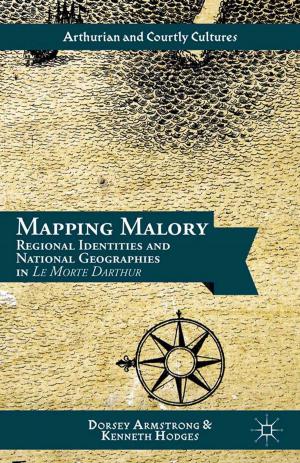The Content of Psychological Distress
Addressing Complex Personal Experience
Nonfiction, Health & Well Being, Psychology, Counselling, Clinical Psychology| Author: | Mr Jack Chalkley | ISBN: | 9781137349767 |
| Publisher: | Palgrave Macmillan | Publication: | June 8, 2015 |
| Imprint: | Palgrave Macmillan | Language: | English |
| Author: | Mr Jack Chalkley |
| ISBN: | 9781137349767 |
| Publisher: | Palgrave Macmillan |
| Publication: | June 8, 2015 |
| Imprint: | Palgrave Macmillan |
| Language: | English |
The Content of Psychological Distress makes the case for focusing psychological attention on the content of people's distressing experience. The growing demand for counselling and therapy in difficult financial times has created pressure to keep work short and highly structured. This has increased reliance on set procedures and categories at the expense of the personal and specific.
The book looks at the rationale for, and practical steps involved in, taking individuals' accounts of their concerns as a starting point. It treats these as a foundation on which approaches of various kinds can be laid. It considers the impact of doing so on building relationships and improving the accuracy and richness of the work undertaken. The book is illustrated with examples from general mental health and particular psychological therapies, as well as with applications to pain, intensive care, cancer, paediatrics and forensic learning difficulties.
This is a timely and important book for students, trainees and practitioners that contains reflections on the historical and philosophical background to the subject. It relates what is argued to a range of existing ideas and approaches concerned with making psychological work ethical and patient-centred.
The book looks at the rationale for, and practical steps involved in, taking individuals' accounts of their concerns as a starting point. It treats these as a foundation on which approaches of various kinds can be laid. It considers the impact of doing so on building relationships and improving the accuracy and richness of the work undertaken. The book is illustrated with examples from general mental health and particular psychological therapies, as well as with applications to pain, intensive care, cancer, paediatrics and forensic learning difficulties.
This is a timely and important book for students, trainees and practitioners that contains reflections on the historical and philosophical background to the subject. It relates what is argued to a range of existing ideas and approaches concerned with making psychological work ethical and patient-centred.
The Content of Psychological Distress makes the case for focusing psychological attention on the content of people's distressing experience. The growing demand for counselling and therapy in difficult financial times has created pressure to keep work short and highly structured. This has increased reliance on set procedures and categories at the expense of the personal and specific.
The book looks at the rationale for, and practical steps involved in, taking individuals' accounts of their concerns as a starting point. It treats these as a foundation on which approaches of various kinds can be laid. It considers the impact of doing so on building relationships and improving the accuracy and richness of the work undertaken. The book is illustrated with examples from general mental health and particular psychological therapies, as well as with applications to pain, intensive care, cancer, paediatrics and forensic learning difficulties.
This is a timely and important book for students, trainees and practitioners that contains reflections on the historical and philosophical background to the subject. It relates what is argued to a range of existing ideas and approaches concerned with making psychological work ethical and patient-centred.
The book looks at the rationale for, and practical steps involved in, taking individuals' accounts of their concerns as a starting point. It treats these as a foundation on which approaches of various kinds can be laid. It considers the impact of doing so on building relationships and improving the accuracy and richness of the work undertaken. The book is illustrated with examples from general mental health and particular psychological therapies, as well as with applications to pain, intensive care, cancer, paediatrics and forensic learning difficulties.
This is a timely and important book for students, trainees and practitioners that contains reflections on the historical and philosophical background to the subject. It relates what is argued to a range of existing ideas and approaches concerned with making psychological work ethical and patient-centred.















